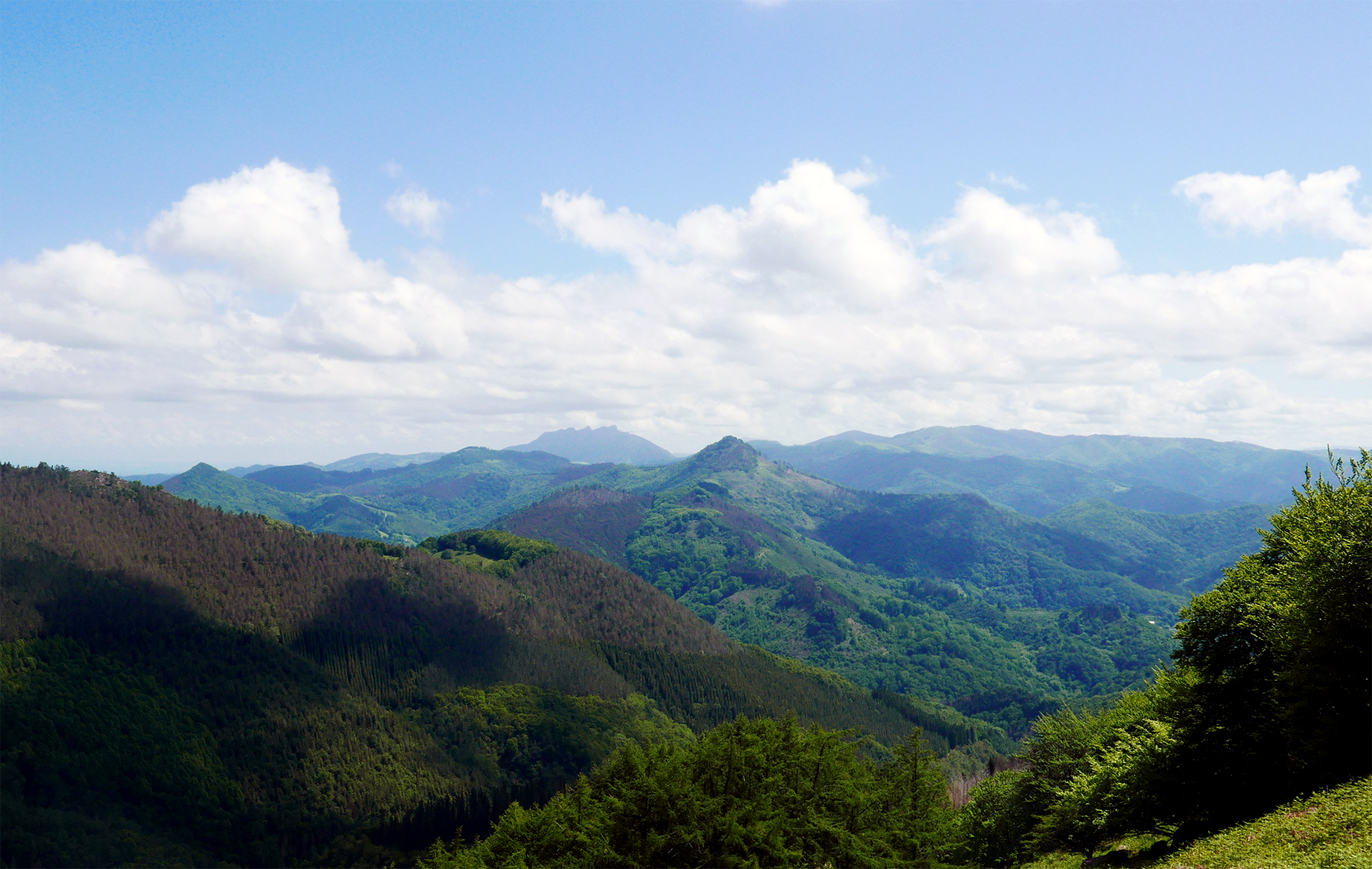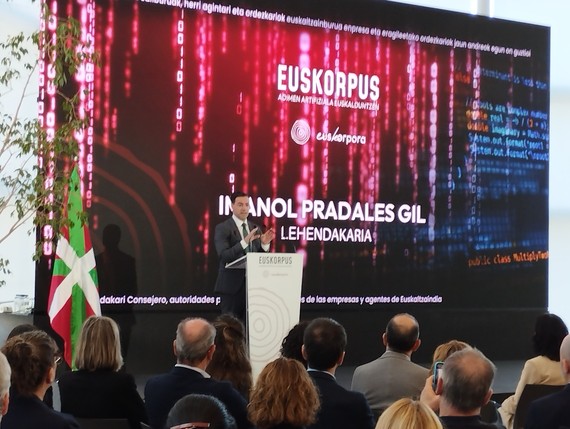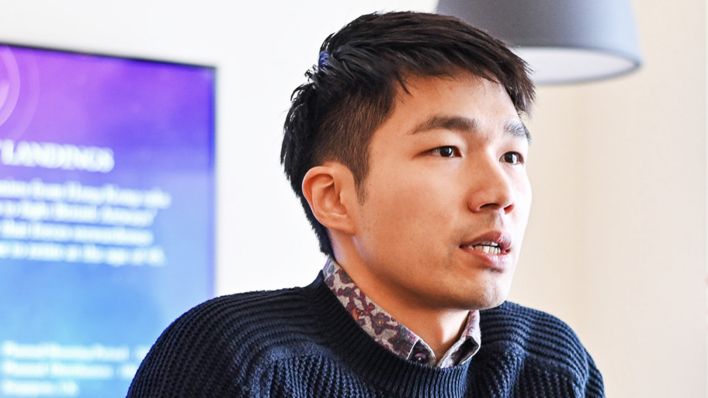"We raised our voices, in the people and in the episcopate"
- Immanuel is 80 years old. It's Marik 81. His wife has Alzheimer's. Even Imanol is forgetting names and a lot of things. “And to us... “We’re younger,” he said.
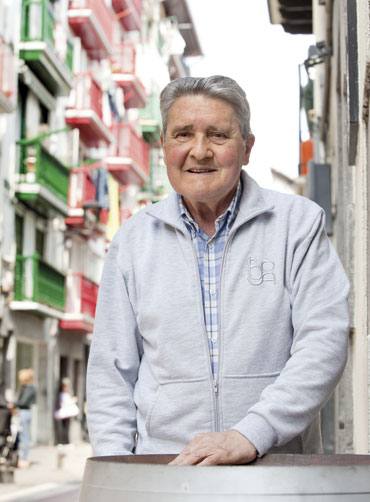
Assisted by Imanol Oruwifaga. We're in Ondarroa, but you were born in Berriz...
...the Oruemakaga Baseta. Beware, the mother must not be forgotten...
(...)
Yes, I'm new. I was born in 1931, during the republican period. Let me tell you an anecdote: The bishops of Bilbao and Vitoria-Gasteiz thought that we seminarians should come to spend fifteen days in Saturrarán. We passed the pipe. But I was worried that my father and mother were planting on the farm. The following year I wrote to Bishop Casimiro Morcillo: “I’m a farmer, they need me at home.”
How did you get along with the bishop?
Bishop Casimiro Morcillo lived in the Basilica of Begoña. We went there to do spiritual exercises; the nuns of the Secular Missions were responsible. Approaching the bishop was difficult, he was an extraordinary person. The secretary of the bishop was Nueva Martija, uncle of the famous cyclist Lejarreta. He called me once – my friends called me “vaya rosca que tienes” – to say: “You are not Imanol, you are Manuel.” “I am a Republican and I call myself Imanol.” He is again: “¿Qué me dices, qué me dices...?” and I... “I was born in the times of the republic, Imanol was so legal as Casimiro.”
You'd come to Ondarro later.
The bishop was coming to Vitoria. I was learning to play the organ back then, but I was actually bored. I told the bishop that I wanted to go to a working-class village: “I command you, I command you...” He sent me to the Dos Caminos neighborhood, next to Basauri. I stayed there for eleven months until the bishop was changed. From there I was sent to Ontario.
“Ex-priest, patriot, tough...” I’ve heard of you.
Not the ex-priest, the priest. Sacerdos in eternum. For me, that's gone forever. As it is said in theology, the sacraments of the order “imprime carácter”. I was a priest and I'm married, I got married a little too old. You say patriotic and hard...
(...)
My father was a council member in Berriz during the last years of the Republic; he was not a member of the PNV. On June 21, Bilbo was arrested on the train to the village. On July 10, St. Christopher’s Day, he was brought before the judge and with him a young friend from Bermeo. The prosecutor demanded a 30-year prison sentence for his friend and a death sentence for his father. The fascists shot the late mayor of Berrizko, Felipe Urteaga. My father thought, “They’re going to wash me too.” Thanks to the Marquis de Nuevo, he was stripped of his death sentence with a twist.
You're a married man. You told me that your wife has Alzheimer's when we made an appointment over the phone. What has this situation taught you?
His situation has caused me more than a reflection. Mari, my wife, took care of my mother until she died. My mother lived with me. Seven years ago I smelled Alzheimer's to my wife: “Mari, you have taken care of my mother for years and now it’s my turn to take care of you,” I said. I associate this duty with the custom of the farm. When I was a little girl, they killed the pig on the farm and gave blood to the neighboring farms. It was my turn to bleed. I am happy with that reflection. We get up at six in the morning and they take him to the Day Residence, Lekeitio. The night is here, looking at the left wall. When I wake up I say: “Maria Goenaga Erostegi...”. And he “...the Bourgeois Izaguirre”.
You mentioned Saturraran earlier. The Francoists prepared the prison for the women.
Yes, I have it very present. We lived in Berriz, next to the parish, the abbot who was Félix Gallastegi, my mother’s uncle, from Axpe. The assistant to the parish uncle was Benantzi. His crime was to read the Euzkadi newspaper. He was imprisoned in Saturraran.
You finally came to the priesthood. What was the Patriarch like then?
I came here forced, crying. He was a popular fisherman above all. First I saw a huge rise and then a fall. Fishing in the basin was very important, and so was fishing in the basin. In 1967, 56 boats were set sail.
Did you go out to sea? A chaplain or what?
No, I don't. I went fishing when I was a priest, only once, I made a maria, in the anchovies. At one o’clock in the morning the boats from Galicia and Santander arrived, filling the entire port. It was a wonderful experience, I’ve been fishing for wine now in gummy times: the fishermen threw their nets and when we all got up together they turned on the lights of the boats, Paris appeared in the sea. It was Paris night for me. It's a big one.
How were things at the local church then?
The parish priest was Don Pedro Arakama, son of Zegama. It's sad to say, but it depended on the Franco chiefs here. There was a mutis in the church. There was some movement around the Church in the province, but there was nothing for the young people of the village. One day the young men made an audience in the church, sounded the bells at two o’clock in the morning and were arrested. A lot of people stopped going to the church. I was in the neighborhood of Kamiñazpi, a small fisherman's neighborhood, now it's full of houses. I came to Ondarro against my will, organist. After ten years I proposed to Don Pedro to go to Kamiñazpi. We set up a barracks and I began to fulfill my purposes as a priest, as a priestly worker, with a word. In the morning I did the needs of the workers and in the afternoon I worked as a priest. Then came the terrible repression, I knew the arrests and the fines.
Ondarroa was famous for the song Son of the Itziar by Telesforo Monzón. Son Andoni Arrizabalaga being.
You mentioned a very interesting person. In 1967 Andoni and I spent a week together on Monte Perdido; next to the Gorliz refuge, camping. We had mass there. I had an acolyte with Andoni, I keep a picture of him from then on. He was arrested in 1968. The month of May 1968 in France was prestigious in the world, and in the Basque Country we had our own month. The repression was horrible, horrible. In politics, in a broad sense, there was a change. For Berba, the people of Ondarroa took to the street because the lords of Madrid wanted to eliminate the port. They changed the direction of the river and accepted a bad urban planning project to the detriment of the town, the works were also assigned. The village stood up. He descended from Kamiñeta during the demonstration and stopped the work. It was a huge demonstration of the village. From then on, terrible things happened, one of them, the arrest of Andoni.
“I met Zamora Prison three years in a row, in 1968, 1969 and 1970,” you wrote in a book that will soon be released.
For the first time, in 1968 I was taken prisoner after October 12. The Civil Guard celebrated Pilarica Day. The Spanish flags covered the Virgin in the church. I was in Kamiñazpii, but there was a burial of a son of the people in the parish. I said to Don Pedro: “A mass of citizens and a church full of Spanish flags! I couldn't possibly... You have to cover the flags or do something.” He said no, nothing could be done. I went into the sacristy and told the sacristan, “Please cover those flags.” Well, I told him and he even covered it up. The next day I was taken to jail. In 1969, we made an audience at the Episcopate of Derio and inside. In 1970 a state of emergency was declared in Gipuzkoa and Bizkaia. In Bizkaia, two towns were considered “bad models”: The working people of Barakaldo and the patriot Ondarroa. Even then, I was caught in the raid.
But why did they take you?
The chief of the secret police of Indautxu came to the village: I'm talking about Criado. The police kept huge records. The motive? They searched my house and found the magazine Kili-kili, which was published by the abbot José Antonio Retolaza [of the Retolaza family]. The magazine was for children, I distributed it. In that number where it was written that the children would walk north, it was a reward for something. He was carrying a map of the Basque Country and I was jailed. The accusation is: “Have an exemplary view of Kili-Kili, showing a separatist sectarian matiz framed map.”
The book of the priests who were in Zamora says in the introduction: “To stand not against unrighteousness, but to fight, neither man nor Christian.”
This has been the leitmotif of the struggle in our lives. We did just that at that time, we raised our voices, both in the Episcopate and in the people. Nothing more than that. It was then that the Hard movement of priests was born.
The priests of Zamora seemed to have a good time. It was a good atmosphere between you two.
Yeah, we've got plenty of anecdotes to tell. Once, it was August, Xabier Amuriza had to go out to a wedding. The rest of us were in the yard, dressed in a shirt, and he boarded and went out with clerman. We laughed at his... In Zamora we had our captain: Assisted by Nikola Telleria. We paraded at night: “We are Basque warriors...” we sang and at the end we sang Gora Euskadi Askatu! The scream. What a spectacle. The guards would come out of the garites shouting, “That’s not what you can do.”
Assisted by Koldo Arriola. You just released a book as deep as the black story of a well-connected murder.
I've pulled a thorn out of my life. I didn’t know the boy so much, my parents were Francoist. When I lived in Kamiñazpi, the Arriola family had the bar there. The guards were often in the bar. My mother said: “My son has been killed twice, twice.” It was a hard blow. Not only did he kill his son, but justice came against him: “He absolved a civil guard.” What a justice! The mother must have heard that her son had attacked the civil guards. My son didn't go into politics...
“The biggest headache has been the depoliticization of Koldo as a person and the appearance of what he was.”
Oh, yeah, yeah. On May 1, a large demonstration took place in front of the headquarters. The guards were furious. There were raids. He was an ordinary son of the people of Koldo. The testimonies in the book show it this way. He went out on the mountain, it was a nice move on the mountain, but he didn't go into politics.
How do you see Patrimony today?
I have known three generations. When I arrived, a lot of galician arrived. Then the fishing in Galicia was strengthened and many returned, others married here and stayed there. In the second wave came many Andalusians and Extremadura, who also came to fish. The last one was Africans. Today, the fleet of Ondarro, the trawler, is alive because the blacks have gone out into the sea. Galician integration has been good, not so much of Extremadura and Andalusia. The Patrimony is famous for its black people. They have a great ability to learn languages, they have also learned Basque. They come mixed up with each other, they come from different tribes, and they use different languages. It's ours too. I had two students who went on missions to Angola. One is a midfielder, Raúl de Gordexuela and the other is a Basque, Perico de Arratia. The Arratian learned the language there, Raúl did not.
You were forced to come to Ondarro. You are 80 years old...
I came here when I was 24, crying, and I've become a crier. I say that I'm from Berkeley, but the citizens say that I'm from Berkeley. So I have immense joy. Ondarroa is a very lively village, this is also my village.
Berrizen (Bizkaia) jaio zen 1931n. Apaiza. Bere aita pilotaria izan zen, palista. Bilboko Euskalduna frontoian jokatu zuen, eta Madrilen ere bai. Ama Axpekoa zuen, baserritarra. Zamorako kartzelan izan zen frankismoan; Gogor mugimenduko kide izan zen. Zamorako apaiz taldearen bizipenak biltzen dituen liburua ateratzear dela, Koldo Arriola. Ondo lotutako hilketa baten istorio beltza bezain sakona (Ondarroako Historiazaleak) kaleratu berri du.
“Atxilotu eta Indautxura eraman gintuzten sei abadeok, poliziaren jefaturara. Basauriko espetxean egon ginen gero, bakoitza zelda batean, irten barik: ‘periodo sanitarioa’n; itxuraz pestea eramaten genuen kanpotik. Basaurin ginela, goizeko bostetan altxa gintuzten. Madriletik kotxe izugarriak ekarri zituzten, kotxazoak. Hiru kotxe eta bakoitzean abade bi: ‘Por el decoro debido al estado sacerdotal’ esan ziguten. Txoferra eta polizia aurrean, eta beste polizia bat atzean. Barazarreko bidean beste kotxe batzuk ikusi genituen gure ondoan, pistolak eta metrailetak nonahi: ‘Zer pasatzen da?’. Pentsatzen zuten nonbait, ETAko komando bat gu askatzera irtengo zela. Ze kakao mentala!
The time has come for us to enrol in schools in the Basque Country for the 2025-26 academic year, and in many homes the youngest of the household will take a new step soon, in September, which is schooling. Proud of the Basque Public School The members of Topagune are firmly... [+]
Since the adoption of the new Education Law for Álava, Bizkaia and Gipuzkoa, we are hearing/reading again and again that education will be free from now on. We have listened to different actors, including the Department of Education, and in the interviews we offer to the media,... [+]
At the beginning of the month he did III. Congress in Pamplona. It is said to be the “ordinary congress” that serves to draw “non-ordinary conclusions”, or at least that is how they have received Zutunik in the paper, proposed by the leadership and unanimously approved... [+]
Euskorpora elkartearen aurkezpen ekitaldi jendetsua izan da asteazkenean Donostian, eta Euskorpus izeneko egitasmoaren berri eman dute bertan. Euskorpus euskarazko hizkuntza baliabide digitalen banku bat izango da, eta 5 milioi pasa inbertituko ditu Eusko Jaurlaritzak bertan.
Azken egunetako giroa baretzeko asmoz eta Ukrainako Gerraren bukaeraz hitz egiteko elkartuko dira Trumpekin, ondoko astean, Emmanuel Macron Frantziako presidentea eta Keir Starmer Erresuma Batuko Lehen ministroa. Auzi bera aipagai, ostegun honetan elkartzekoak dira ere... [+]
Urtarrila amaieran ezarri zieten 5.000 euroko isuna ordaintzen laguntzeko txartelak jarri dituzte Herria, Marruma eta Platero tabernetan.
"Konfiantza eta gertutasuna" oinarri izango duen Udaltzaingo eredua nahi dute Zumaia, Getaria eta Azpeitiko udalek. Horretarako, udalerri horiek ondo ezagutuko dituzten bost udaltzain kontratatuko dituzte elkarrekin eta hautagaiei B2 euskara maila ere eskatuko diete.
49 urte preso pasa ondoren, libre utzi dute Leonard Peltier AEBetako ekintzaile autoktonoa. Otsailaren 18 honetan heldu da bere senide eta lagunen artera 80 urte dituen preso-ohia.











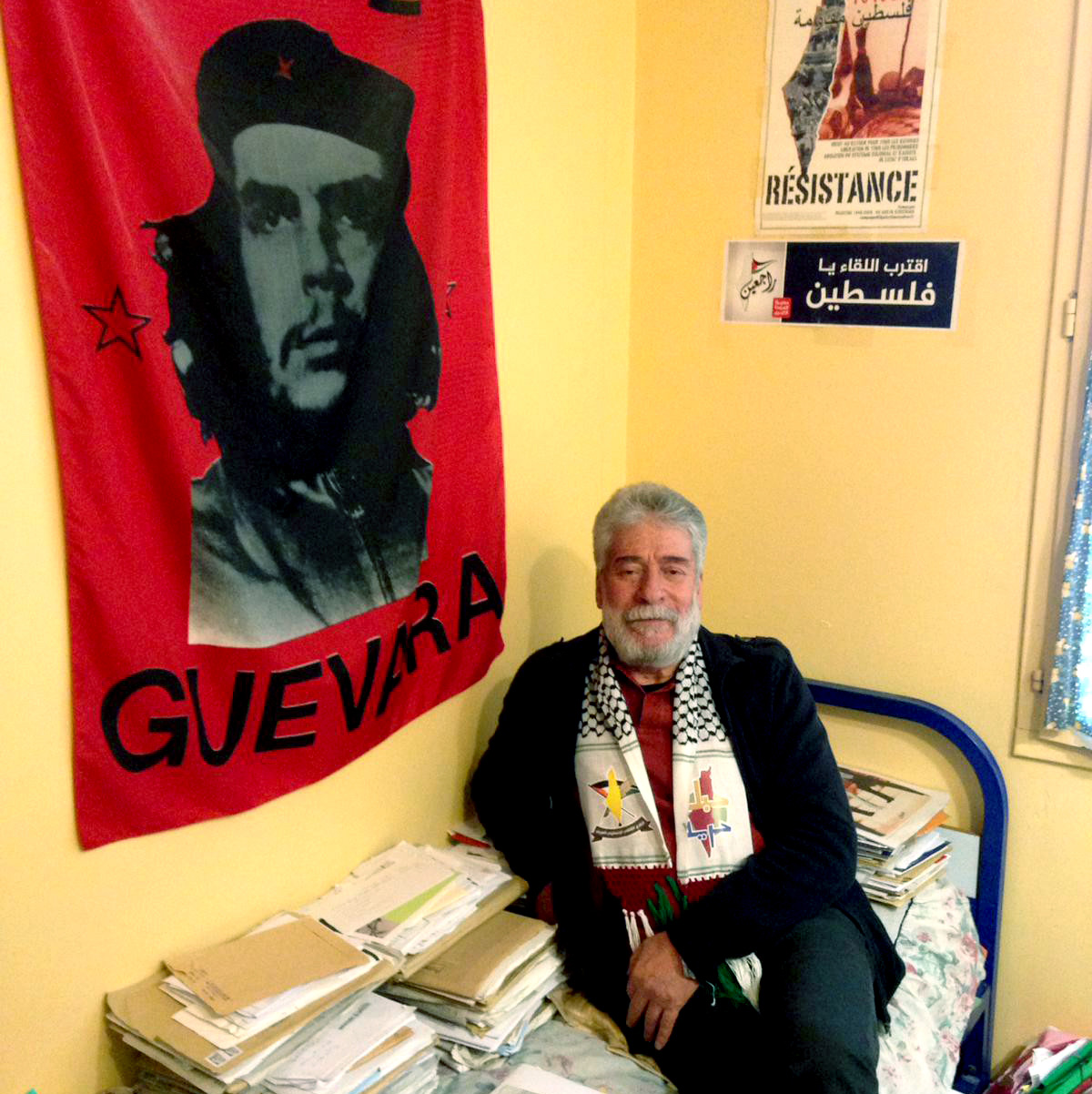
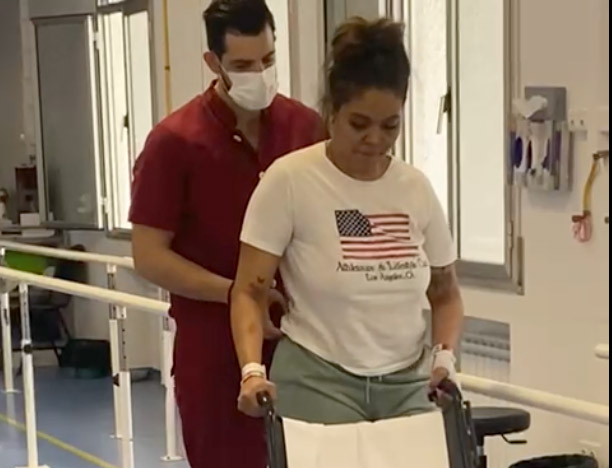
_Glaciar.png)
